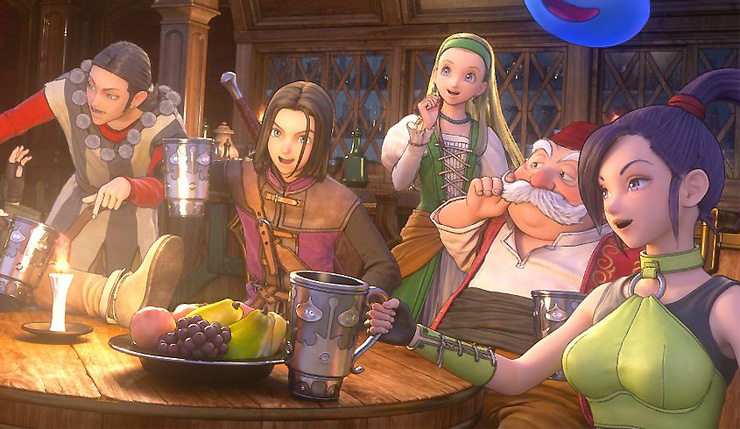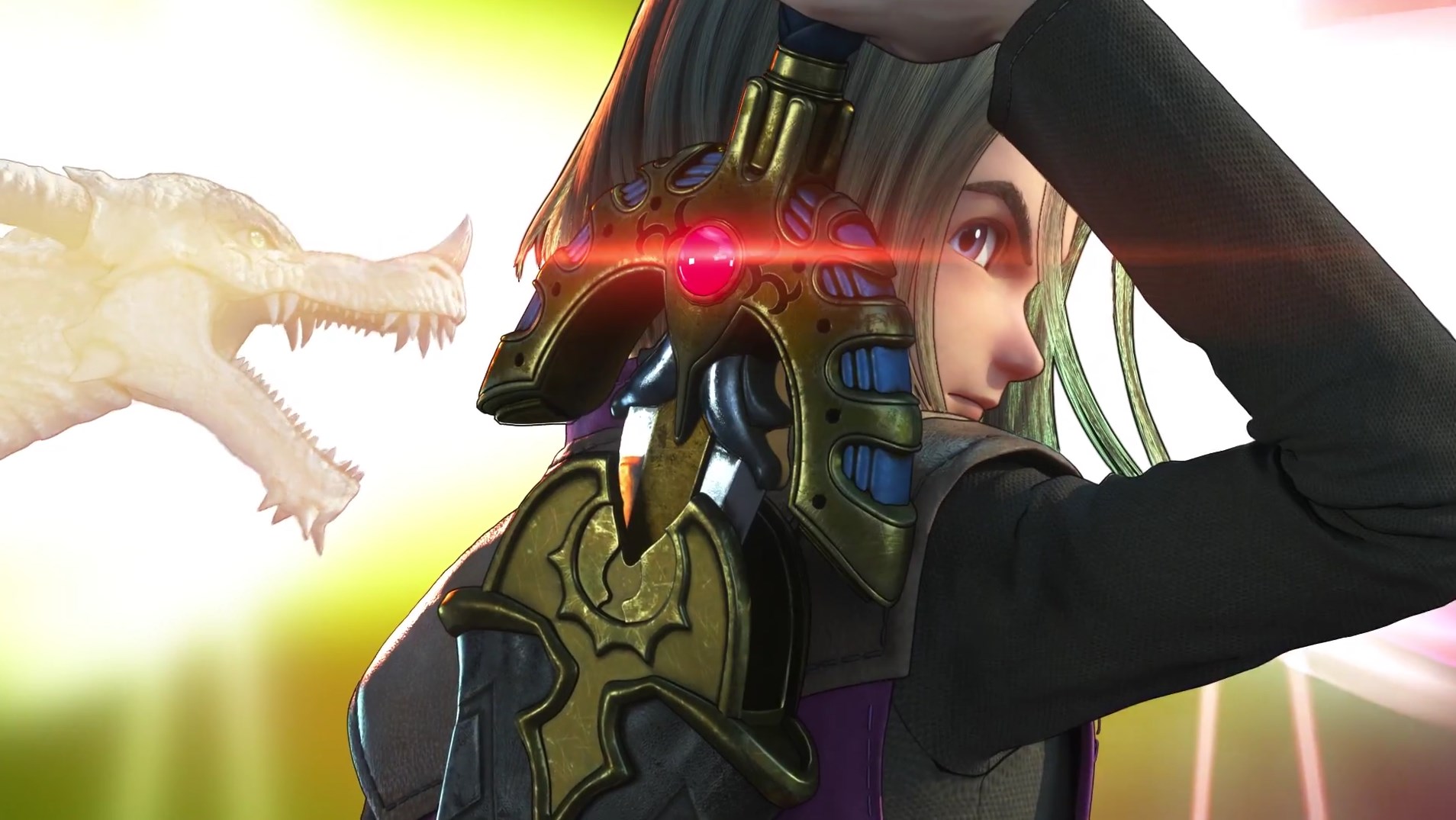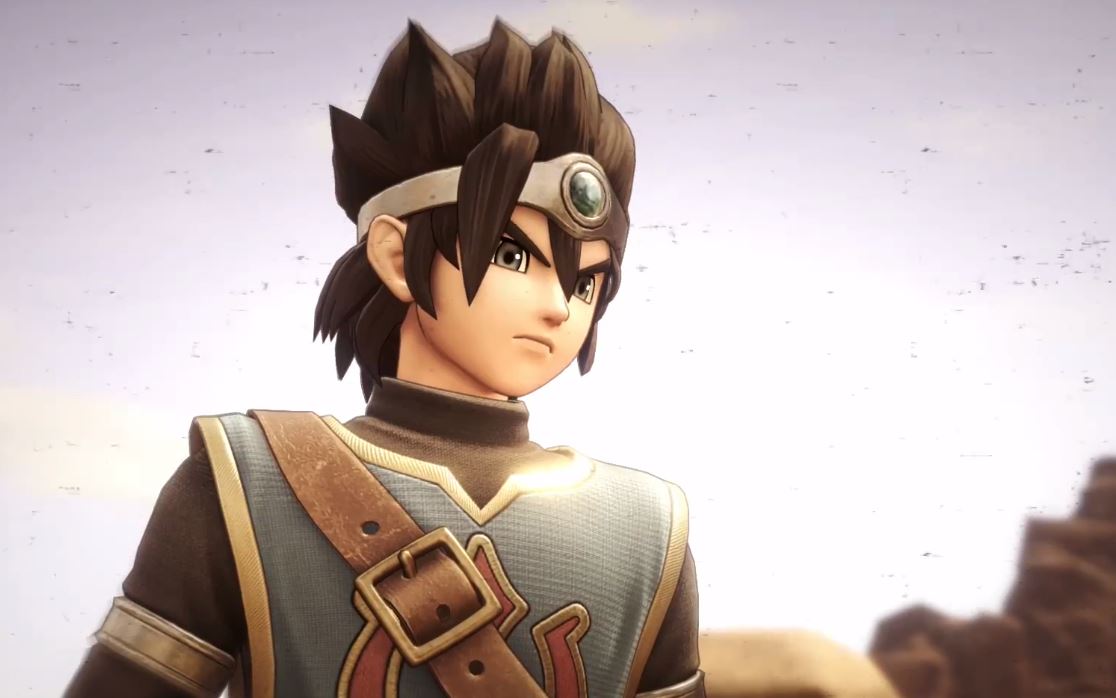Dragon Quest 11's true ending is remarkable, if you have 100 hours to spare
Stick with it after the credits roll for a grandiose third act that makes you feel the full weight of Dragon Quest's history.

Spoiler warning: This article is all about Dragon Quest 11's third act and its ending, so it will contain some story spoilers.
Sixty hours into Dragon Quest 11 the credits rolled, but I wasn't satisfied after defeating the evil wizard and restoring peace to the world. I was pissed off. It just felt all wrong. It was anticlimactic. The big bad had a cliché final form, and that was it? After a quest this long my characters were simply going to fly away, cue credits? Both of those those made for a disappointing finale after so many hours. But they weren't the real problem: The real problem was that so many things felt unresolved, it was hard to believe this was the ending to a languidly-paced RPG that could've tied everything up with a bow.
The third act is all about committing wholeheartedly to the pursuit of a happy ending, even if that means going back in time to set things right.
Why had a cutscene a few hours earlier focused in on a mysterious character, practically screaming this is important? What was the deal with the giant fireball in the sky that the villain destroyed, which my heroes had been trying to do themselves? Why had I been accruing so many items and crafting resources in the final dungeon if I'd never get a chance to use them?
I should've realized that wasn't the real ending, that a game made with such care wouldn't leave a single plot thread dangling. But I had no idea what I was in for: While some RPGs let you keep playing after the story is finished, Dragon Quest 11 unfurls a remarkable third act—dozens more hours of story, its true villain, and a grand finale—after the credits roll for the first time. I had so much further left to go.

Dragon Quest 11's first ending feels remarkably similar to the story of Final Fantasy 6. Midway through the game, the bad guy wins. The world is plunged into darkness. Your failed heroes eventually rise and reunite, but it takes many sacrifices to bring you to a second showdown with the conquering, cackling villain. But where Final Fantasy 6 was okay with the darker tones of leaving its world half destroyed, Dragon Quest 11 is, at its heart, not that kind of game. It's a feel-good, unabashedly earnest save-the-world adventure. And that means saving everyone. The third act is all about committing wholeheartedly to the pursuit of a happy ending, even if that means going back in time to set things right.
It's a great twist. Dragon Quest 11 gives you back control after the credits roll, as you reunite with your friends some months after taking care of the evil Mordegon. The world has been rebuilding and mourning its lost. Long story short, you find your way into a giant temple that was teasingly inaccessible earlier in the game and discover you can send your protagonist, and your protagonist alone, back in time to relive your first battle against Mordegon, when everything went to hell.
I loved how Dragon Quest 11 refuses to cut any corners for this moment. When you return to your party, they're exactly as you left them a good 20 or 30 hours before, right down to their items and equipment. They're curious why you seem a bit different (and where you got your new sword), and the extra levels you've gained let you tear through random battles with ease. Soon the story is taking you on a totally different path, and it all plays out like the mirror universe version of the 30 hours or so of game you've just been through.
The biggest gaming news, reviews and hardware deals
Keep up to date with the most important stories and the best deals, as picked by the PC Gamer team.
There are new sidequests, characters back from the dead, challenge dungeons that remix old locations in new ways. What would've been a post-game in most RPGs, aimed at players who just want to wring more challenge out of combat, is, for Dragon Quest 11, simply the rest of the game. You have dozens of hours to spend in the world after it's fully unlocked, with fast travel and just a ridiculous number of things to do. I spent a few more hours in the casino, learned how to farm liquid metal slimes for massive XP, hunted down crafting books to make some of the game's best equipment, and learned the true story of the legendary hero who preceded me. And it's all tinged with the excitement of knowing you're rewriting the history you just lived through.

Dragon Quest 11 is absolutely an overly long game, sleepily pacing out story beats across 80-100 hours, with little in the way of character development given how long you spend listening to characters talk. Your crew are a fun, lively bunch—they're good characters, just not particularly deep ones. Before the credits rolled the first time, I was frustrated by the shallow characterization and the slow pace. But even though the party doesn't develop substantially in the final hours, I'd consider the third act essential to the experience of Dragon Quest 11, even if it's presented as an optional addendum to the story.
Basically, if you've already spent 50+ hours on this game, what's a few dozen more? Everything comes into focus in act three: Not only is every mini storyline resolved, but Dragon Quest 11 finally reaches the grandiose scale, with a cosmic force of darkness as the true villain, to justify its overly simple premise.
It all comes together too neatly, happily, and earnestly for a game released in 2018... unless that game is Dragon Quest.
I'd rather play an RPG with complex character motivations and arcs and a goal slightly less cliché than saving the world. But if I am going to save the world, let me do it by riding a giant magic whale into space and punching a bad guy in the face with the power of light. And since time travel is already on the table, let me rewrite the tragic fate of this world's first heros and give them a happy ending, too.
It all comes together too neatly, happily, and earnestly for a game released in 2018... unless that game is Dragon Quest knowingly fulfilling its role as an entire generation's videogame comfort food. Creator Yuji Horii has said Dragon Quest 11 was designed to be an homage to the entire series and a celebration of its 30 year history, and that's obvious in the gorgeous 3D models of decades-old monster sprites, the classic music, the turn-based battles, and scattered small references.
But it really comes into focus the second time the credits roll, as scenes from all the Dragon Quest games play out in succession, linking your journey to every one that's come before. In the game's final moments, the orchestral theme kicks in and Dragon Quest 11 gives you one last little reward for the huge journey you've taken: the title of a true hero, directly linking your character to the first trilogy of Dragon Quest games made so many years ago.
When this Japanese commercial for Dragon Quest 11 came out, a year before I'd play the game in English, I thought it was remarkable for conveying deep nostalgia for the series even if you didn't speak the language. I didn't expect it, but the last five minutes of Dragon Quest 11 hit me the same way: They made me feel connected to a legacy that began 32 years ago, even though I've never played those original games. That's the power of Dragon Quest's devotion to its own history. It may have taken me 90 hours, but that was an ending worth the wait.

Wes has been covering games and hardware for more than 10 years, first at tech sites like The Wirecutter and Tested before joining the PC Gamer team in 2014. Wes plays a little bit of everything, but he'll always jump at the chance to cover emulation and Japanese games.
When he's not obsessively optimizing and re-optimizing a tangle of conveyor belts in Satisfactory (it's really becoming a problem), he's probably playing a 20-year-old Final Fantasy or some opaque ASCII roguelike. With a focus on writing and editing features, he seeks out personal stories and in-depth histories from the corners of PC gaming and its niche communities. 50% pizza by volume (deep dish, to be specific).

